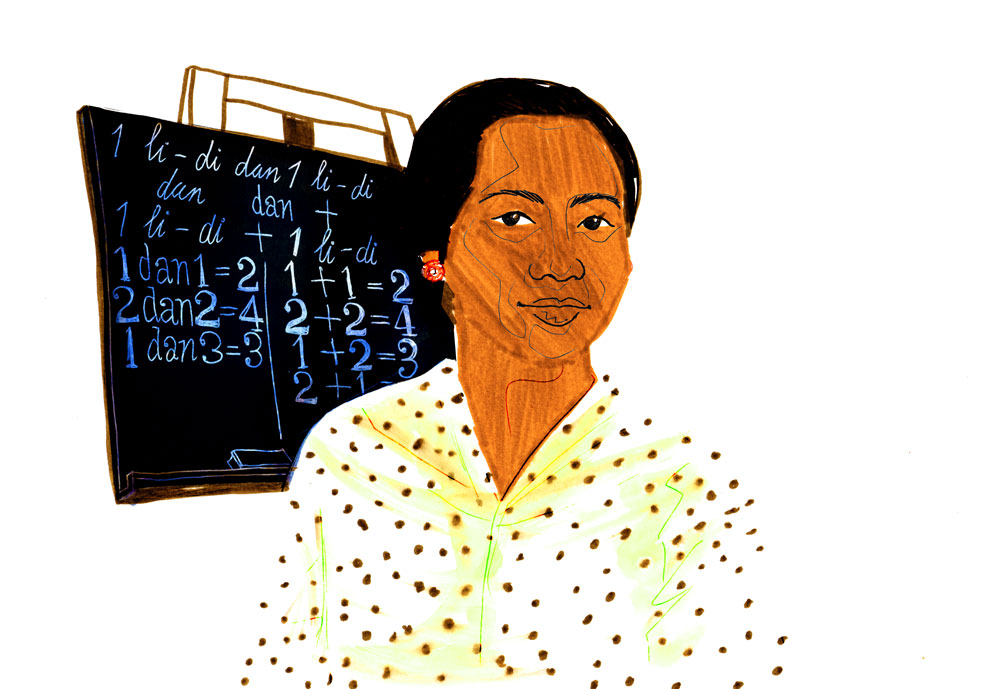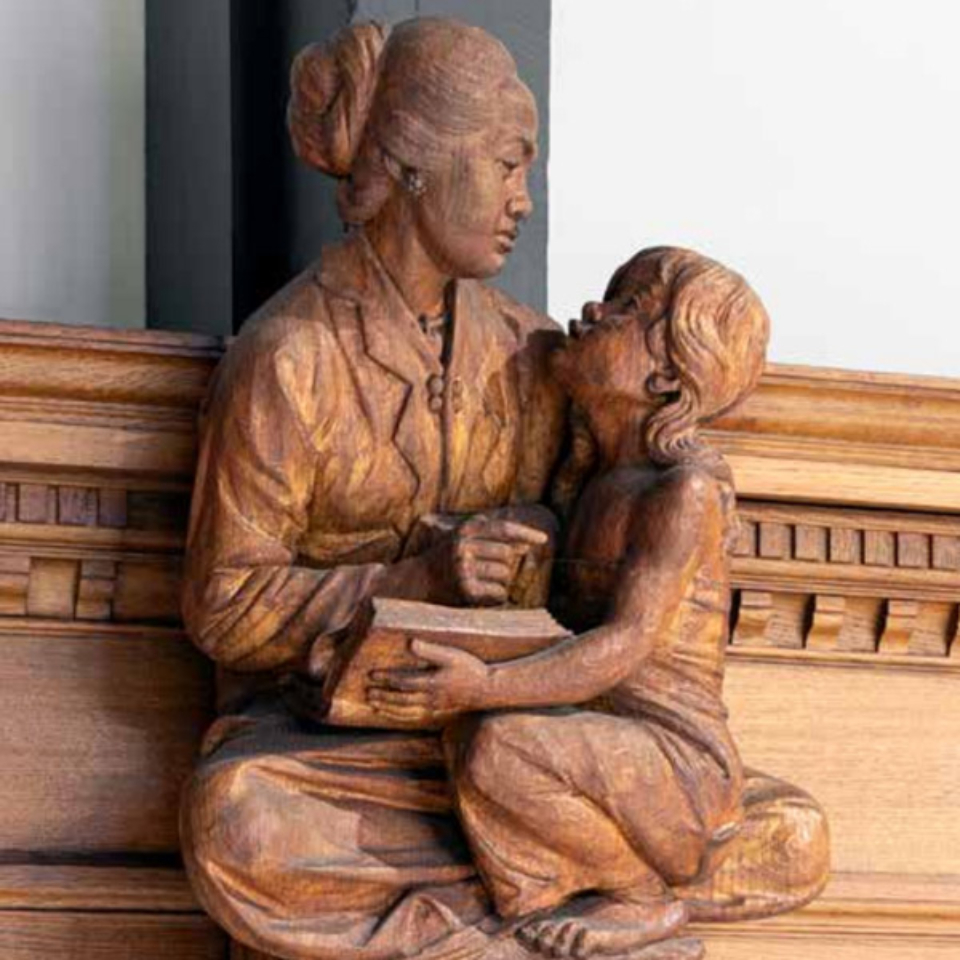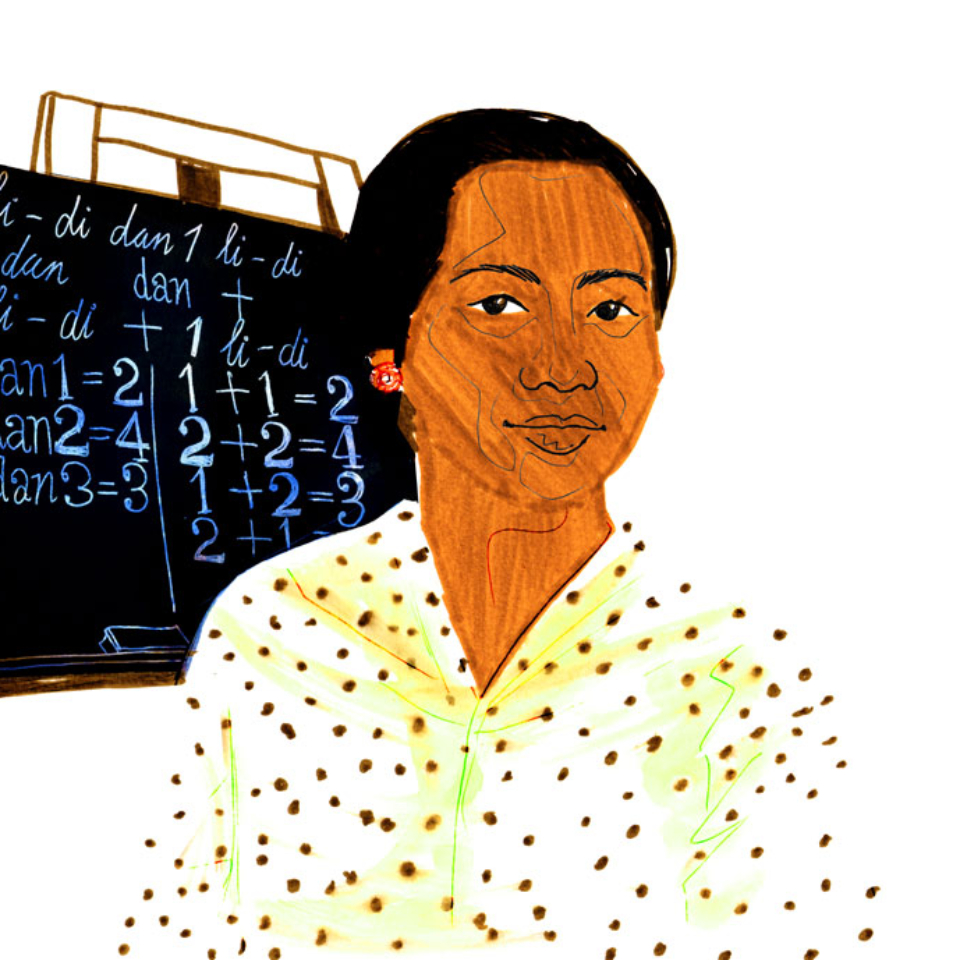She was committed to improving the status of women and children. Kartini had been educated as a child, and was aware of the importance of schooling. Her subsequent efforts concentrated on educational opportunities for Indonesian girls. To this day, Kartini is an example for many, especially women, in Indonesia and the Netherlands. Her birthday, 21 April, is the national holiday Hari Kartini, and in 1964 she was declared a National Hero of Indonesia.
Education was an important tenet of the Dutch Ethical Policy for the archipelago in the first half of the twentieth century. However, there were only a few schools, and these were often segregated by ethnicity. Indonesian nationalists, who opposed Dutch domination, argued with increasing vigour for the importance of an anti-colonial education. Eventually, they set up their own Taman Siswa schools.
Raden Ajeng Kartini is depicted twice within the building: a wooden statue in the former library’s reading room and a bust above the central arch in the museum’s Lichthal (Hall of Light). In the latter, Kartini is flanked by a student, likely a Javanese girl, and a teacher, a Javanese woman with a quill and pen. In the same hall across from Kartini is a statue of Queen Wilhelmina, a worthy counterpart to this powerful personality..






